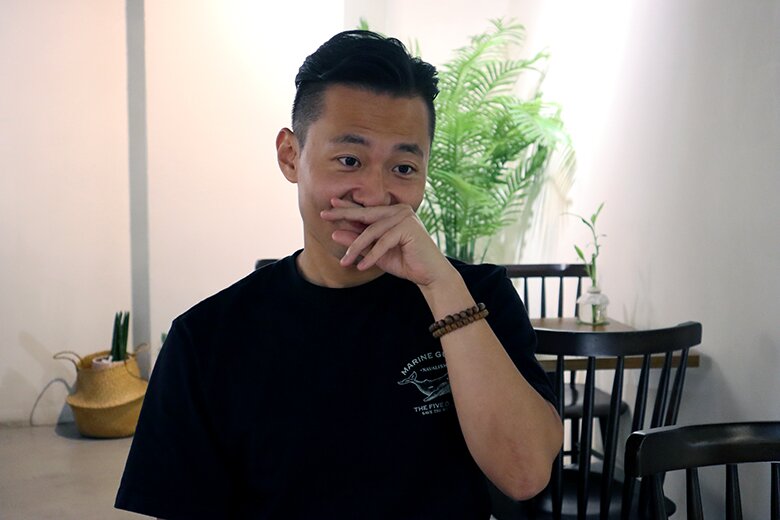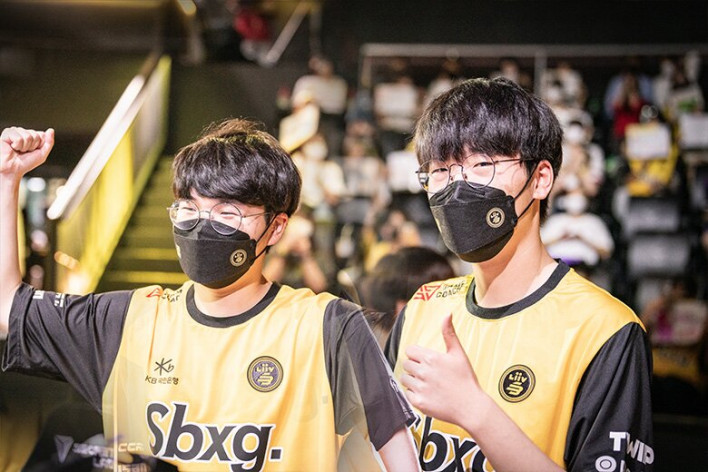
As esports grows, so does the number of people looking for a career in the industry. However, it can be very difficult to find a job, and hard to know where to start. The need for people with diverse talents increases as the industry continues to grow, but it’s not always obvious how to get in.
For those planning a career in esports, we've prepared a series of interviews with esports insiders. From how they found their jobs, what they needed to succeed, to who they are as people, we want to bring you their stories. We're delighted to introduce our next interviewee in the ‘Meet the esports insiders’ series, Sim Young-bo, the lead scout for Liiv SANDBOX.
Please introduce yourself to our readers.
Hello, I’m Sim Young-bo, lead scout of Liiv SANDBOX. I’m a scout and am in charge of developing young players.
How did you become a scout?
When I was a reporter, I had a lot of interest in games, so I wrote many articles about analyzing games. The general manager of Liiv SANDBOX saw my analyses and offered me to become a scout, and I took up the offer since it seemed fun.
How is it different seeing the game as a reporter and as a scout?
A reporter is a person that observes and describes something. As a reporter, I just had to be logical, and everything was okay if my logic was correct. However, a scout has to be really responsible for their actions. It’s not just about the logic — results have to follow.
Then is it more pressuring being a scout than being a reporter?
If you want to be good at something, there’s always pressure. If a reporter feels pressure from wanting to write something and to deliver what they’re asserting well, a scout feels pressure from taking action on something and accepting the result of their actions.
What exactly does a scout do?
Majorly, it’s divided into two parts — scouting a pro player and scouting an amateur player. To scout a pro player, we have to watch the league and solo rank games a lot. I’ve been trying to create more objective data that discludes intuition or subjective thoughts.
There’s a similar process to scouting amateur players, but this used to be a very analog process — one person watches someone’s replays, and they contact those who have potential. It’s not that different now, but we’re attempting to use AI to find players that are special.

As a scout, how can you tell if a player is good?
Up to now, it was mostly based on coaches’ intuition, but I think we shouldn’t stick to that method anymore. As a matter of fact, even in traditional sports, the teams that have freed themselves from that method are finding good players and getting good results.
For example, there’s a research result that says the results of the players that got good intuitive evaluations from “experts”, such as coaches or scouts like me, and players that the public evaluated well are similar. This proves that evaluating a player intuitively is very dangerous, so most teams are trying to avoid doing so. To become a good scout, you have to avoid using your instincts.
Then to you, what kind of player is a good player?
Frankly speaking, I’m in the process of finding that. Being a hard worker or having a good personality is a must. Besides that, I’ve been researching what aspect makes a player good. What it is, I haven’t yet found.
Then what kind of research have you done?
To approach with data more, I’ve been working a lot with third parties and researchers. As for the results of that research, I’ve found some core values in League of Legends. But I can’t say that I’ve made that research fruit in one year.
What was the most fruitful working as a scout?
It’s the most fruitful when the players I scouted improve and do well. Also, as I mentioned earlier, I try to research data to avoid evaluating players intuitively — when I find meaningful data through that research, it’s fruitful as well.
Which players have you personally brought to the team?
The players I focused on in the main roster are Clozer and Kael. When we signed Clozer, we moved really fast. But it wasn’t completely me since the final decisions are made by the coaching staff and the general manager — I’d say we all cooperated well.
What’s heard from the outside is that there’s sometimes conflict between the coaching staff and scouts or analysts due to differences in opinion. Have you had that experience?
Not really. Our team usually listened more to the coaching staff’s thoughts, but we all discuss things thoroughly when we make decisions.

What was difficult working as a scout?
It’s similar to what I said earlier. There are times that I scout someone from my intuition, philosophy, and senses, but when I get to think that there’s no clear basis for my action, it’s difficult. Still, I’ve been trying to read the data to find the trend. After all, League of Legends is a ten-year-old game.
When I brought in Clozer and Kael, it was based on data. I found how many players that are similar to Clozer succeeded in the past and we signed him based on the odds from that data. Also, I considered the age distribution of the LoL esports players and was convinced that Clozer has a good chance to lead the next generation of players.
It was the same with Kael. I scouted him based on the ten years of data about how well players of that performance at challengers played in the LCK and how well players above a certain solo queue point did in the LCK. Since Kael is only 18, even if he doesn’t perform well immediately, I was sure that he’ll do well next year or the year after that.
As a scout, what kind of advice do you want to give the prospects?
I wish the players research more. Most prospects struggle to deliver their thoughts logically. This is connected to playing the game. Many kids can’t logically talk about why a champion is good or analyze the game, and they’re not used to doing so.
If you look at the star players such as Keria, Faker, Chovy, or ShowMaker, they improved by suggesting clear reasons and bases for their choices and decisions. I believe the players of this style have the best chance to succeed.
So to find a relation between performance and this area, we went through brainwave tests of the trainees and had IQ tests or recognition functional testing as well.
Just bringing in players without this kind of research based on intuition is a gamble — even for the players. Some scouts may bring in a player based on their potential, as Alex Fergusen did, but that’s not systemized — it’s hoping to get the winning lottery ticket.
Would you recommend becoming a scout to the readers of the Esports Insiders series?
It’s a job you can do if you really like it. You have to watch games all day and get used to looking at numbers. Even if you really like gaming, it’s not easy to think about the game every day for seven-eight hours per day. But after all, if you don’t do that, scouts don’t need to exist.
What do people need to prepare if they want to become a scout?
A scout has to speak and write logically. They have to speak to the coaching staff and the organization about why a certain player is needed for the team and convince them. If they can’t, there’s no meaning in their existence.
Also, scouts shouldn’t hate looking at numbers. Even if they didn’t learn statistics, they need to get used to seeing all those numbers. Obviously, good game knowledge is a must too.
Do you think collecting, researching, and analyzing the League of Legends data will get deeper in the future?
It has to get deeper. There are more and more smart people coming into the industry every day. What these smart people can do is treat all the numbers. The decisions made based on intuition can’t last forever as it isn’t reliable. There could be some people with great intuition, but if that person leaves the organization, there’s nothing left for them.

Baseball is based on a 1v1 matchup as it’s mostly pitcher vs. batter, so there’s a lot of data involved. However, many say that it’s difficult to accumulate data on team sports like soccer or League of Legends. What do you think?
It’s true, but even soccer analyzes much more data now. Teams like Liverpool or Manchester City brought in physicists on the team to research. What I know is that they’ve introduced a model like Alphago to analyze situations where the most goals are scored, or how to advance to a situation to make scoring goals easier.
The reasons these teams are ahead aren’t simple. There are many teams that spend a lot of money, but Liverpool and Manchester City are the leaders.
I don’t know how long it’ll take for League of Legends to reach that level — it could even take 20 years. But I’m sure that we have to go in that direction.
It took tens of years to convince the baseball players to go after a certain pitcher’s slider because their slider has low RPM, but now, it’s done by everybody. There are many more examples than that, and there will be more in the future.
Do you have any comments you’d like to say to our readers?
We’re always looking for talented people. We’re thinking we’re a startup company, and we want to take the chances and go on many challenges.
Smart people are always welcome. If you like numbers or enjoy analyzing and researching the game, we want to work with you. If you read this interview and feel that you want to work with us, please contact us. The contact information is on our main homepage.
![]()
- Byungho "Haao" Kim
- Email : haao@inven.co.kr
-

![]()
- David "Viion" Jang
- Email : viion@inven.co.kr
-




Sort by:
Comments :0